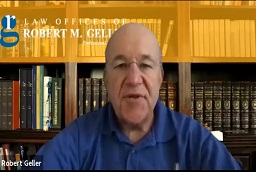Post Optimization: Measuring Success
 Post-Optimization is an area of PPC Management that is perhaps less analyzed and where less support is readily available than the actual optimization stage itself, for example.
Post-Optimization is an area of PPC Management that is perhaps less analyzed and where less support is readily available than the actual optimization stage itself, for example.
After spending so much time optimizing one of your PPC campaigns, you really do need to find a way in which you might be able to decide whether or not you did the right thing during the optimization stage. Did you make more money? If so, how much more? And if you didn’t make more money is that necessarily a problem?
Perhaps your baseline is not centered around profit? Perhaps your company is more interested in raising profile and developing brand awareness than it is in making money from online marketing? Indeed, if your conversion call-to-action is actually the filling out of a subscription form, then maybe you are more interested in raising membership numbers than you are in selling products online?
Only you can answer these questions, but the important thing that needs to be understood and concluded from this article today is how to measure your success (whatever you deem to be successful) from an objective standpoint so that a number of different people can look at the same data and draw the same conclusions. This is the difficult part.
To that end, Webrageous Studios has outlined three different ways of analyzing your optimization strategies beginning from the simplest of ideas to implement to the most complex in order to at least give you a place from which to begin your post-optimization analyses and to do so with success and peace of mind.
Let’s begin…
Trending Metrics
On a basic level, begin deciding whether your optimization tricks have had any kind of positive impact on your PPC Campaign by looking at trends.
These trends can include trends in revenue, profit, ROI, membership subscriptions, whatever it is that you look at week to week, month to month.
The only problem with this approach is that it doesn’t take into account sudden shifts in the environment or seasonal dips in performance, for example. It is a means of analysis that works best within a steady and stable environment that never really changes because of outside influences.
Let’s be honest… When is PPC Advertising never really influenced by external issues?
This first process is good for a surface look at your efforts and an overall feeling about the effects of your optimization strategies, but it may not be able to give you really conclusive results.
 Online vs Offline Business Success
Online vs Offline Business Success
Therefore, if you are being affected by seasonal issues or dips in the market overall that are providing some really skewed data that you simply have no effective way of reading and utilizing, why not try comparing the PPC online results to those of your offline business results as a whole?
In basic terms, if your overall business saw a 20% increase in earnings during the last month and your PPC conversions increased by 40%, you might want to attribute that extra 20% of the entire company’s earnings to the efforts that you made with PPC Advertising.
In this instance, the optimization that you did for your PPC Campaign can be concluded as exceptionally positive and you can also be confident enough to conclude that PPC Advertising is really the only form of advertising that is working for your business at this time.
Therefore, if you were using some of the budget to advertise elsewhere, you may want to re-think this strategy and start investing that extra finance into more PPC, for instance.
The problem with this analysis system, however, is that it is completely unusable for those businesses that use PPC Advertising to market something completely different to that of the rest of their advertising. For example, maybe your PPC Advertising is all about selling products related to Christmas in December? In this instance, this system is a pointless form of optimization analysis.
Analyzing in Parts
Therefore, perhaps this final idea for analyzing the effects of your optimization strategy is going to be the idea that works best for you?
Try looking at your PPC Advertising in parts. Maybe there are some areas of your PPC Advertising that are managed more automatically than others, for example? Maybe you have sets of keywords and ad groups that are run under different budgets?
Take each part in turn and analyze the developments separately and in their own right, as well as comparing each section with another, in order to see whether it would perhaps be profitable to cut off one section of the PPC Campaign and focus more resources on another area of your PPC that is working well?
Clearly the analysis of optimization success is just as complicated as the optimization of a PPC Campaign itself and everything is in some ways trial and error; an aspect of PPC Management that takes time, care and a lot of patience.
Hopefully, the above three tips will at least give you a good place from which to start.



















